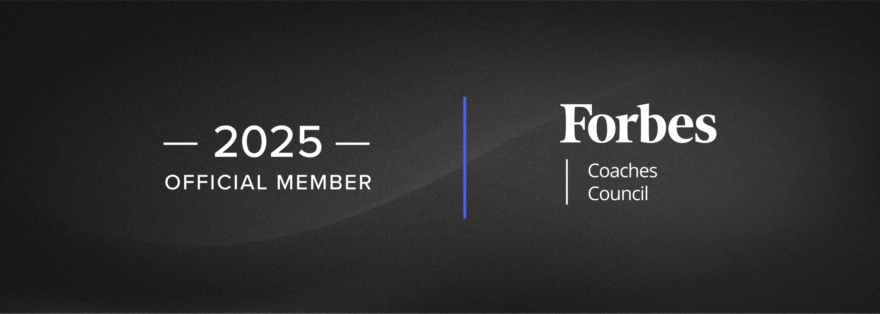Organisations often view training programs as quick fixes for performance issues, expecting immediate returns on investment. However, this perspective overlooks the complexities of learning and development. Training alone cannot address multifaceted organisational challenges without alignment with the organisation’s culture, systems, and leadership practices.
This article explores the limitations of relying solely on training as a solution and emphasises the need for a comprehensive approach that includes leadership involvement, ongoing support, and a culture that fosters continuous learning.

When we engage with learning and development teams in organisations, the most common question is, “How will you measure the impact of the intervention? To which we reply, “How do you measure it now?”
Learning & Development Teams are typically deferential to the major operational business units; they serve the company by understanding and closing the capability gap. The problem is that businesses like to measure impact, but measuring learning impact is far from easy.
Measuring ROI is understandable; of course, everyone wants to see their investment pay off, but the issue is when only Learning and Development are accountable, you leave the outcome to chance. Why? Because the puzzle is more complex.
The problem
When managers and leaders position training as the panacea for organisational challenges yet point fingers at these programs when performance falls short, they overlook a critical piece of the puzzle: their role in the learning transfer process.
This contradiction underscores a broader corporate culture issue, revealing misplaced expectations and a misunderstanding of how learning effectively translates into improved job performance.
Firstly, there’s an overarching tendency to overestimate what training can achieve in isolation. This optimism, while initially seeming beneficial, sets the stage for disappointment.
No matter how comprehensive, training can only singularly address multifaceted organisational issues by reinforcing post-training support. This support includes coaching and mentorship, opportunities for practical application, and a culture that encourages reflection and continuous learning.

The Impact
I have been on many courses in my corporate life, and rarely, if ever, have I been sat down with before or after any intervention to ensure that the thousands invested in me will pay off.
When my manager didn’t take the time or, at its worst, even talk about the intervention, the message I got was that it wasn’t important and any post-learning activity was down to me. The manager effectively says it is unimportant or they don’t care. That is leaving the outcome to chance!
Moreover, the alignment—or lack thereof—between training programs and an organisation’s strategic goals can significantly impact their effectiveness.
Training initiatives not tailored to an organisation’s specific needs and culture are less likely to yield meaningful outcomes. Leaders play a crucial role in ensuring that training is not just a box-ticking exercise but is genuinely relevant and integrated into the organisational strategy.
The environment where employees apply their new skills also plays a crucial role. A supportive work climate and a clear understanding of the training’s relevance to their positions can significantly enhance the transfer of learning. Conversely, an environment that lacks these elements can stifle the application of new skills, no matter how excellent the training intervention.
Accountability and measurement are also often needed in the equation. With clear mechanisms to track the application of learning and its impact on performance, it’s easier to blame the training when expectations are unmet. This approach overlooks the necessity of a supportive infrastructure that facilitates the transfer of learning.
Lastly, the psychological aspect of cognitive dissonance, where leaders believe in the power of training but find it easier to blame it for failures, highlights a disconnect and, for me, deflection away from them. They absolve themselves and their crucial role in the learning transfer. It points to a need for a more nuanced understanding of how training, organisational culture, and leadership practices intersect to impact learning and performance.
The solution lies not in devaluing training but in recognising its place within a broader system of continuous learning and support. Leaders must shift their mindset from viewing training as a standalone solution to seeing it as part of a comprehensive strategy that includes their active involvement.

The Solution
Leaders and learners need a shift in mindset; move away from viewing training as a one-off event, a tickbox. Everyone needs to see it as part of a continuous learning journey.
Learning is not or ever will be a silver bullet; it cannot be effective without alignment with the organisation’s culture, systems, and leadership practices.
Leaders and learners need to establish clear objectives for their training, understand how training aligns with organisational goals, provide ongoing support for learners, and implement mechanisms to measure and reinforce the application of new skills in the workplace.

Before Training
Line managers should spend time with their people ahead of any development intervention to articulate:
- Why this training is important for them and the business.
- Why now is the right time.
- How it aligns with the business goals.
- What goals for the training
- What they expect of them during and after the intervention.
After Training
Arguably, post-intervention clarity and support are most vital. Line managers should ask their people to reflect with purpose; this means reviewing to identify areas that might still need attention and having a call to action for how they will apply their learning. After all, if my boss is interested, this must be important!
- Reflection – ask learners:
- What did they learn?
- So What does that mean for them?
- Now What will they do differently?
- Application – create opportunities for people to put learning into practice.
- Coaching & feedback – identify opportunities to provide meaningful feedback and coach where required to raise the bar and embed learning.
I can hear managers and leaders raising their eyebrows as they read, shouting, “Does this guy not realise how much we have to do?” They will argue they don’t have the time to spend this time with their people. What they fail to realise is that they are already spending that time addressing the shortcomings and issues that arise from a lack of confidence or competence due to poor follow-through, practice, reflection and application.
Training ROI only comes if the employee, managers and learning teams combine with a unified approach.
This article first appeared on Forbes.com on 25th March 2024
Ricky has been a regular contributor to the Forbes Councils since 2023, where he shares his perspectives on all things leadership, change, culture and productivity, all with Thinking Focus’ unique perspective on metacognition, or as we prefer to say, thinking about thinking.


